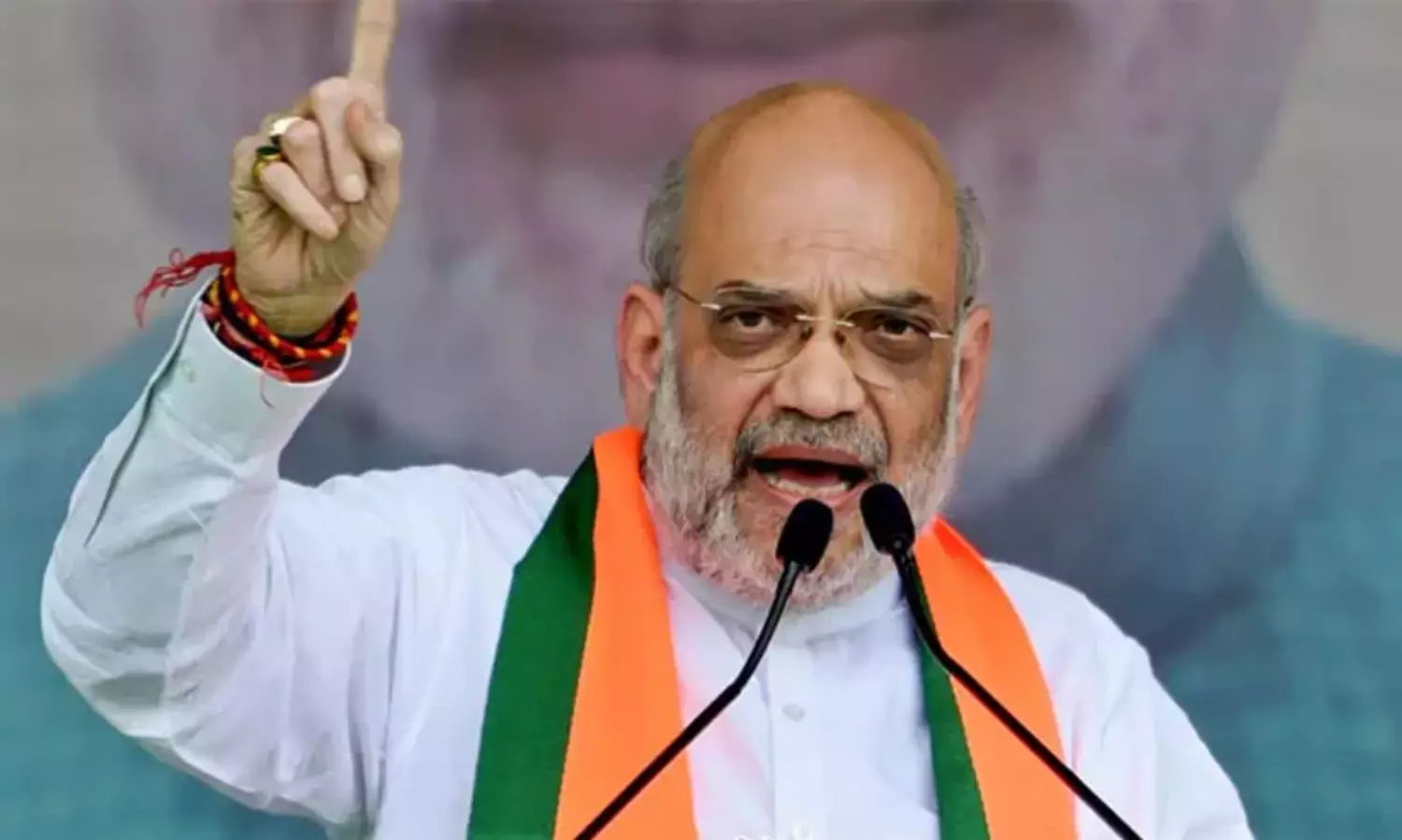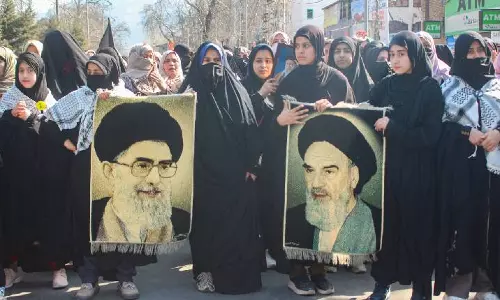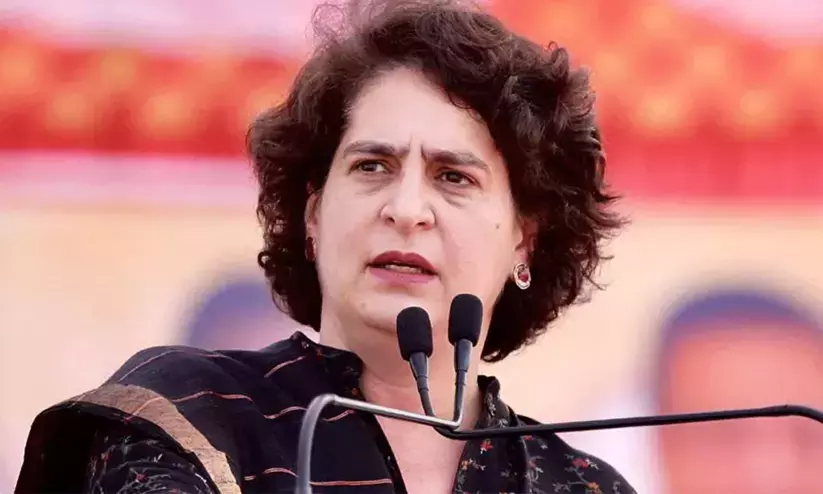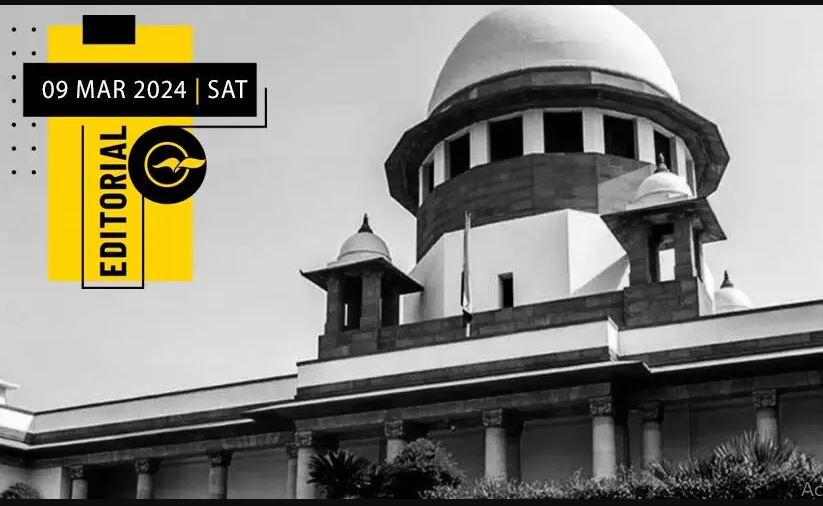
Supreme Court verdict brings a whiff of relief
text_fieldsThe rule of the Sangh Parivar has normalized acts of taking the law into their own hands, beating and killing those they dislike, silencing dissent through intimidation, and entangling individuals in legal cases. The Association for Protection of Civil Rights (APCR), a civil rights organization, recently revealed that 56 incidents of hate crimes, including racial riots, property destruction, sexual assault, murder, and spreading religious and racial hatred, were reported in January alone. The phenomenon of mob violence against minorities is increasingly common, coupled with the paradox of using the same legal system to normalize these atrocities disregarding the rule of law. The legal system is being used to institutionalize the persecution of these minorities. This is occurring in the country where freedom of expression and opinion is enshrined as a cornerstone of the constitution. In India, criticizing or questioning the government and authorities often leads to draconian punishments that would shame even a monarchy. In this context, the Supreme Court's recent verdict, declaring that the law and the system cannot be manipulated according to the whims of individuals, comes a welcome relief. The apex court observed that the county having completed three-quarters of a century as a democratic republic, the people are well aware of democratic values and that it is unfair to judge the entire Indian population based on the actions of a handful of fickle-minded individuals. The Supreme Court also emphasized that harmless expressions of opinion, even if they are against government policies, cannot be considered to incite unrest and enmity in society. Furthermore, the tendency to perceive danger in every disagreement and to act against others is unjust.
The Supreme Court made its stance clear by dismissing the case registered against Javed Ahmed Hajam, a teacher at Sanjay Gandhi University in Maharashtra, under Section 153-A of the Indian Penal Code. He was charged for making a statement in a WhatsApp group of teachers and parents of the institution that August 5 is a black day for Jammu and Kashmir, expressing discontent with the abrogation of Article 370, and acknowledging August 14 as Pakistan Independence Day. This section of IPC pertains to promoting enmity between different groups based on religion, race, and nationality. Any Indian citizen has the right to criticize the abrogation of Article 370 and the removal of Jammu and Kashmir's special status. Describing that day as a black day is a form of protest. A two-judge bench of Justices Abhay S. Oka and Ujjal Bhuyan dismissed the police case against Hajam, ruling that criminalizing criticism and opposition to state actions under Section 153-A would not be constitutionally valid. The complainant approached the Supreme Court after the Bombay High Court's Division Bench dismissed his petition to quash the FIR against him last April. While dismissing the case, the Bombay High Court took the view that public sentiment should be respected when expressing opinions on issues and that any criticism should be made with due consideration of the merits and demerits. However, the Supreme Court ruled that the WhatsApp message did not contain anything that could create discord, hostility, or hatred between different sections of people in society. The court also clarified that the expression of opinion against the abrogation of Article 370 is protected by Article 19(1)(a) of the Constitution and that Section 153-A of the Indian Penal Code cannot be applied to it. The court also observed that such matters should not be decided based on the sentiments of some weak-minded people in society, which is a clear pointer to the future.
The Supreme Court has ruled that Section 153A cannot be invoked to prohibit people from extending greetings to individuals from other countries, including Pakistan. The court observed that the message "Happy Independence Day Pakistan," accompanied by a picture of a crescent moon, conveys a message of goodwill and cannot be construed as promoting enmity and hatred between different religious groups. The court also emphasized that the appellant's religious affiliation cannot be considered as a criterion for determining interests. The Supreme Court's observation is significant in the context of the widespread misuse of anything related to Pakistan as a weapon by Hindutva forces and their supporters to make allegations of treason and anti-national acts against Muslims. The court's remarks discourage such frivolous arguments. Even the Bombay High Court, while dismissing the petition, had ruled that there was nothing criminal in the Pakistan greeting message on WhatsApp.
The current situation is that the Sangh Parivar is attempting to create communal polarization by interpreting the actions of a particular religious group solely through the lens of religious hatred, resorting to baseless accusations and dragging them into law and order issues and legal cases. Recognizing this, the Supreme Court's verdict in the Javed Ahmed Hajam case upholds not only the dignity and pride of our country and its Constitution but also the citizenry of this pluralistic society, bringing solace to peace-loving patriots.


























